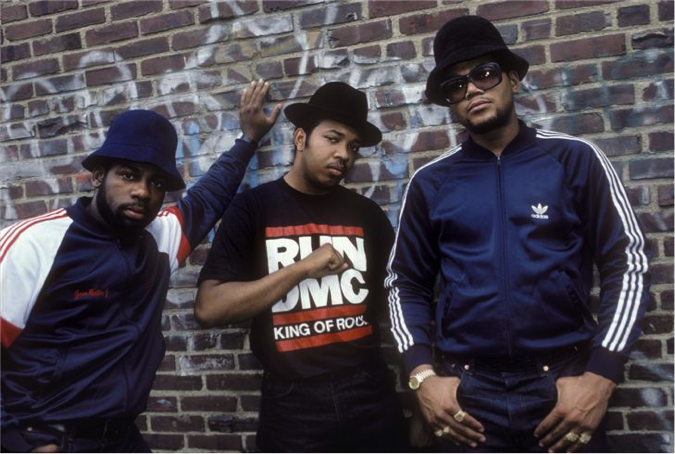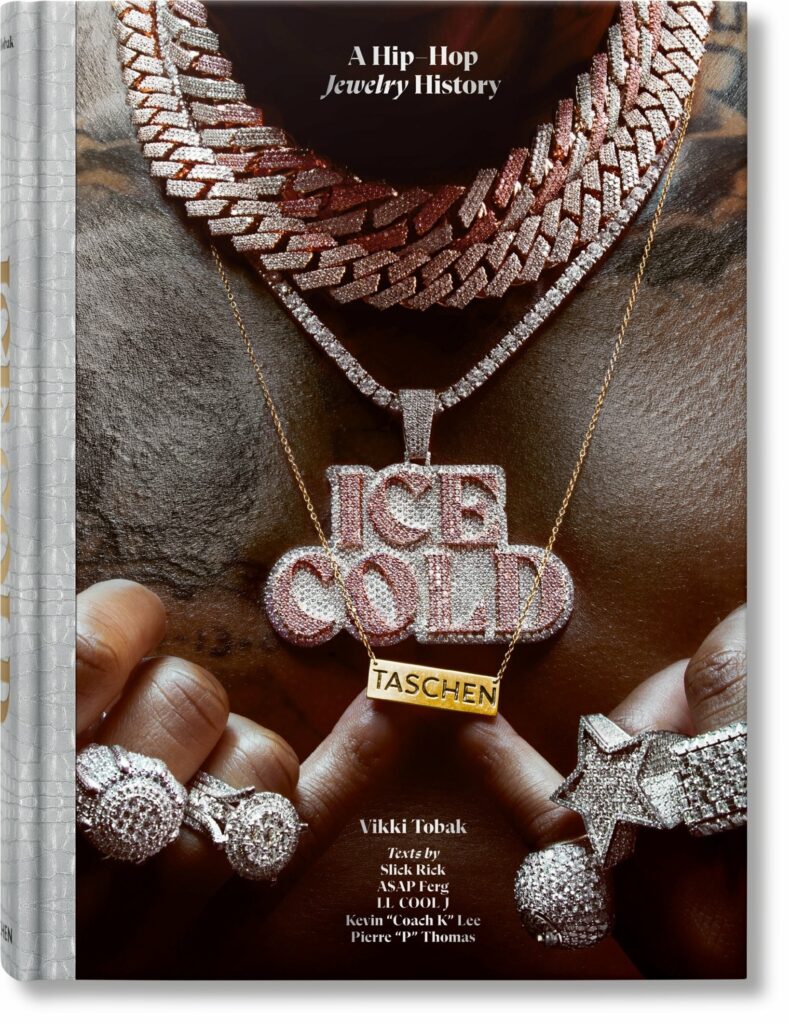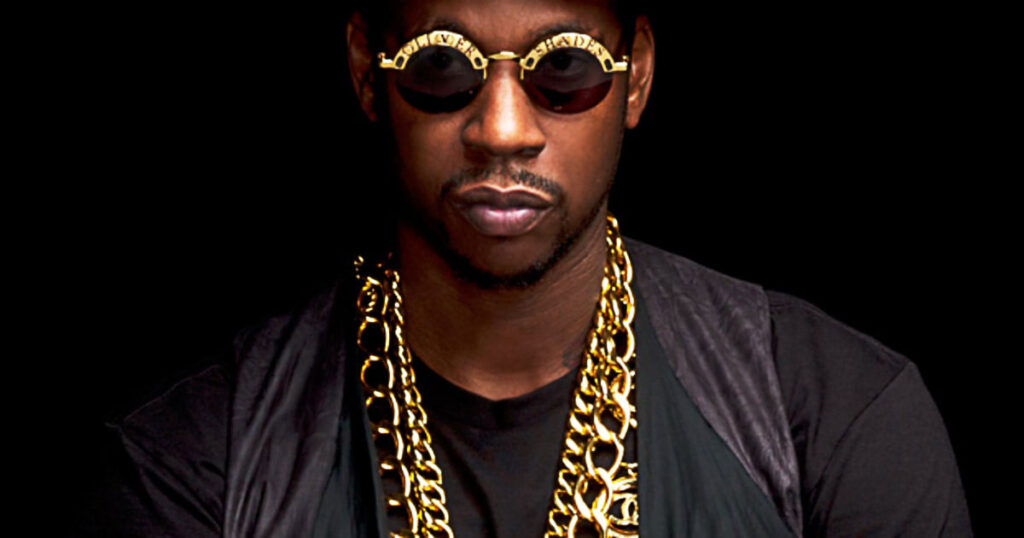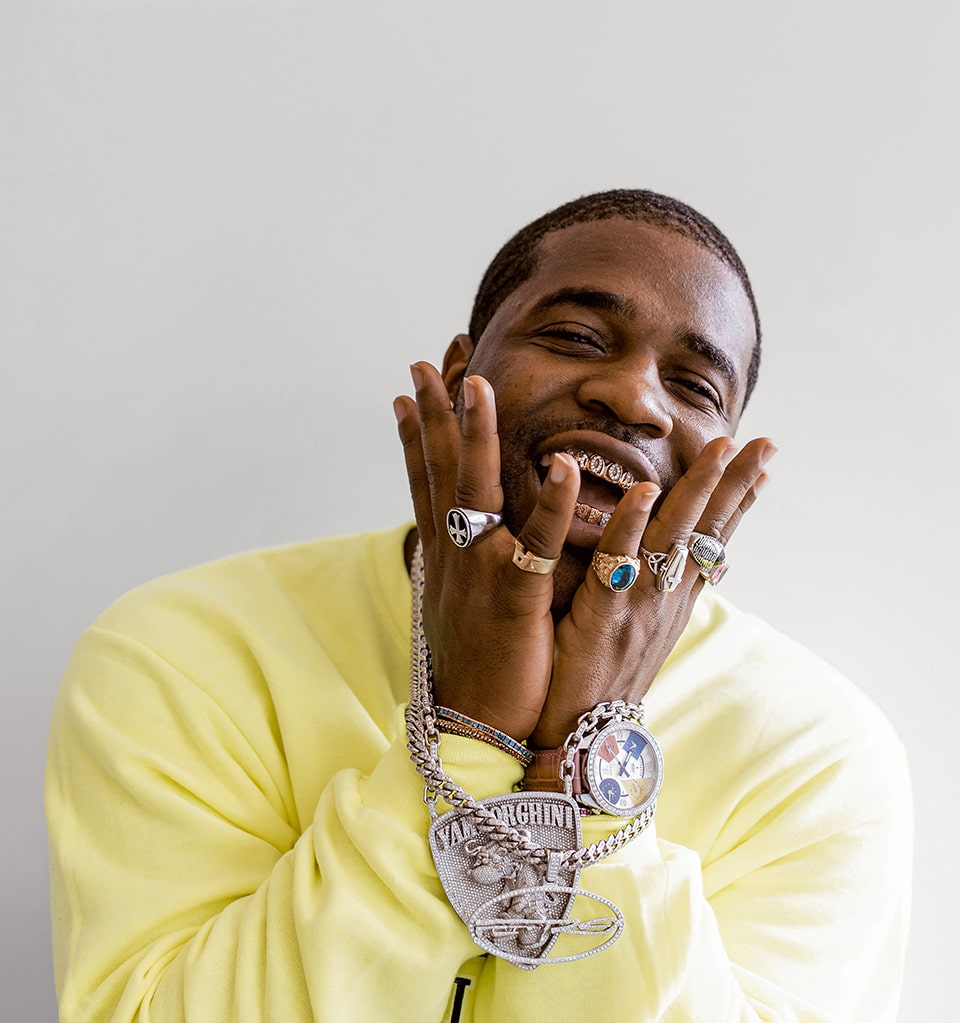
Introduction
Defining Hip Hop Fashion
Hip hop fashion is a style that emerged from the streets of New York City in the late 1970s and early 1980s. It is characterized by oversized clothing, baggy pants, and athletic wear. The style was heavily influenced by the music and culture of hip hop, which was also emerging at the time. Hip hop fashion was a way for young people to express themselves and their identity through clothing. It was also a way to rebel against mainstream fashion and societal norms. Today, hip hop fashion has become a global phenomenon and has influenced popular culture in many ways.
Brief History of Hip Hop Fashion
Hip hop fashion emerged in the late 1970s and early 1980s in the Bronx, New York City. It was a reflection of the cultural and social changes that were happening in the African American and Latino communities at the time. The style was characterized by oversized clothing, baggy pants, sneakers, and baseball caps worn backwards. The fashion was also influenced by the music and dance styles of hip hop, such as breakdancing and graffiti art. As hip hop music became more popular in the 1980s and 1990s, so did the fashion associated with it. Today, hip hop fashion continues to evolve and influence popular culture around the world.
Hip Hop Fashion and Popular Culture
Hip hop fashion has had a significant impact on popular culture, particularly in the realms of music, fashion, and entertainment. The bold and expressive style of hip hop clothing, characterized by baggy pants, oversized t-shirts, and flashy accessories, has become a staple in mainstream fashion. Many popular brands have incorporated hip hop-inspired designs into their collections, and celebrities across various industries have embraced the style. Additionally, hip hop fashion has influenced the way people express themselves and has become a symbol of individuality and self-expression. Overall, hip hop fashion has played a crucial role in shaping popular culture and continues to inspire new trends and styles.
Hip Hop Fashion and Popular Culture
Hip Hop Fashion as a Form of Self-Expression
Hip hop fashion has become a powerful form of self-expression for many individuals. It allows people to showcase their unique style and personality through clothing, accessories, and hairstyles. The fashion associated with hip hop culture is often bold, colorful, and eye-catching, reflecting the vibrancy and energy of the music and dance that inspired it. From oversized t-shirts and baggy pants to flashy jewelry and sneakers, hip hop fashion has evolved over the years, but it has always remained a symbol of individuality and creativity. For many people, dressing in hip hop style is a way to express their identity and connect with a larger community of like-minded individuals who share their passion for the culture.
Hip Hop Fashion and Streetwear
Hip hop fashion and streetwear have become synonymous with each other over the years. Streetwear is a style of clothing that originated from skateboarding and surfing culture and has since been adopted by the hip hop community. The two styles share many similarities, such as oversized clothing, graphic tees, and sneakers. Streetwear has become a staple in hip hop fashion, with brands like Supreme, Bape, and Off-White being worn by some of the biggest names in the industry. The influence of streetwear on hip hop fashion has been significant, with many artists incorporating the style into their music videos, performances, and everyday wear. The combination of hip hop and streetwear has created a unique and iconic fashion culture that continues to evolve and inspire new trends.
Hip Hop Fashion and High Fashion
Hip hop fashion has had a significant impact on high fashion over the years. Many luxury brands have incorporated elements of hip hop style into their collections, such as oversized clothing, streetwear-inspired designs, and bold graphics. In recent years, collaborations between high fashion brands and hip hop artists have become increasingly common, further blurring the lines between the two worlds. This fusion of hip hop and high fashion has not only elevated the status of streetwear but has also brought a new level of diversity and inclusivity to the fashion industry.
Hip Hop Fashion and Sports
Hip hop fashion has had a significant impact on the world of sports. Athletes have been known to adopt the style of hip hop fashion, particularly in the form of oversized clothing and athletic wear. The baggy pants and jerseys that were once associated with hip hop culture have become a staple in the world of sports, with many athletes wearing them both on and off the field. Additionally, hip hop fashion has influenced the design of athletic shoes, with many popular sneaker brands collaborating with hip hop artists to create unique and stylish footwear. The influence of hip hop fashion on sports has not only changed the way athletes dress, but it has also helped to bridge the gap between the worlds of music and sports.
Hip Hop Fashion and Gender
Hip hop fashion has had a significant impact on gender norms and expectations in popular culture. In the early days of hip hop, men and women often dressed in similar baggy clothing, with oversized t-shirts, sweatpants, and sneakers. However, as hip hop fashion evolved, it became more gender-specific, with men often wearing sagging pants and oversized jerseys, while women embraced form-fitting clothing and high heels. This shift in fashion has challenged traditional gender roles and allowed for greater expression and individuality in style. Today, hip hop fashion continues to push boundaries and blur gender lines, with artists and fans alike embracing a wide range of styles and aesthetics.
Hip Hop Fashion and Race
Hip hop fashion has always been closely tied to race. In the early days of hip hop, the fashion was a reflection of the African American and Latino communities that created the genre. Baggy clothing, athletic wear, and sneakers were all staples of hip hop fashion, and they were often worn as a way to express pride in one’s cultural identity. As hip hop became more mainstream, its fashion began to influence popular culture as a whole. Today, hip hop fashion is worn by people of all races and backgrounds, and it continues to be a powerful symbol of cultural identity and expression. However, it’s important to remember that hip hop fashion has its roots in communities of color, and it’s essential to acknowledge and respect that history.
Hip Hop Fashion and Globalization
Hip hop fashion has become a global phenomenon, spreading from its origins in the Bronx to cities around the world. The globalization of hip hop fashion has been driven by a number of factors, including the popularity of hip hop music and the rise of social media. As hip hop has become more mainstream, its fashion has become more accessible to people of all backgrounds and cultures. Today, hip hop fashion can be seen on runways in Paris, Tokyo, and Milan, as well as on the streets of cities around the world. This global reach has helped to cement hip hop fashion as a major influence on popular culture, shaping the way people dress and express themselves in countries around the world.
Impact of Hip Hop Fashion on Popular Culture
Hip Hop Fashion and Music Videos
Hip hop fashion has had a significant impact on music videos since the genre’s inception. In the early days of hip hop, music videos were often low-budget and featured artists wearing their everyday streetwear. However, as hip hop became more mainstream, music videos became more elaborate and fashion-forward. Artists like Run-DMC and LL Cool J popularized the trend of wearing Adidas tracksuits and Kangol hats, while artists like Salt-N-Pepa and Queen Latifah brought attention to bold, colorful clothing and accessories. Today, hip hop music videos continue to showcase the latest trends in fashion, with artists like Cardi B and Travis Scott setting the bar for what’s hot in streetwear.
Hip Hop Fashion and Film
Hip hop fashion has had a significant impact on the film industry, particularly in the portrayal of urban culture. The baggy clothing, oversized jewelry, and athletic wear commonly associated with hip hop fashion have become staples in films featuring urban settings or characters. In addition, hip hop fashion has also influenced costume design in films outside of the urban genre, with designers incorporating elements such as sneakers and hoodies into their designs. Hip hop fashion has become a recognizable and influential aspect of popular culture, and its presence in film only serves to further solidify its place in the mainstream.
Hip Hop Fashion and Advertising
Hip hop fashion has had a significant impact on advertising and marketing. Many brands have incorporated hip hop style into their advertising campaigns to appeal to a younger, urban demographic. From clothing brands to soft drink companies, hip hop fashion has become a popular marketing tool. In addition, hip hop artists themselves have become brand ambassadors, endorsing products and collaborating with companies to create their own fashion lines. The influence of hip hop fashion on advertising is undeniable and has helped to shape popular culture.
Hip Hop Fashion and Social Media
Hip hop fashion has had a significant impact on social media, with many influencers and celebrities adopting the style and showcasing it on their platforms. Instagram, in particular, has become a hub for hip hop fashion, with users sharing their outfits and streetwear brands gaining popularity. The platform has also allowed for the rise of streetwear and sneaker culture, with users showcasing their collections and collaborations with brands. Social media has helped to spread hip hop fashion globally, making it accessible to people from all walks of life and further cementing its influence on popular culture.
Hip Hop Fashion and Celebrity Culture
Hip hop fashion has had a significant impact on celebrity culture, with many famous musicians and actors adopting the style. From oversized clothing to flashy jewelry, hip hop fashion has become a staple in the wardrobes of many celebrities. In fact, some celebrities have even launched their own clothing lines inspired by hip hop fashion, further cementing its influence on popular culture. The trend has also extended beyond the entertainment industry, with many people around the world embracing hip hop fashion as a way to express themselves and their individuality. Overall, hip hop fashion has become a powerful force in shaping popular culture and continues to inspire new trends and styles.
Hip Hop Fashion and Street Style
Hip hop fashion and street style have become synonymous with each other over the years. The fashion trends that originated from the streets of New York City in the 1970s have now become a global phenomenon. Hip hop fashion is all about being bold, loud, and unapologetic. It is about expressing oneself through clothing and accessories that are unique and eye-catching. Street style, on the other hand, is more about individuality and personal expression. It is about taking inspiration from the streets and creating a look that is both stylish and comfortable. Together, hip hop fashion and street style have had a significant impact on popular culture, influencing everything from high fashion to everyday wear.
Hip Hop Fashion and Sneaker Culture
Hip hop fashion and sneaker culture have become synonymous with each other. Sneakers have been a staple in hip hop fashion since the early days of the genre, with artists like Run-DMC famously sporting Adidas Superstars. Today, sneaker culture has become a global phenomenon, with limited edition releases selling out within minutes and reselling for exorbitant prices. Hip hop artists continue to be at the forefront of this culture, collaborating with major sneaker brands and releasing their own signature shoes. Sneakers have become more than just a fashion statement; they represent a lifestyle and a sense of community within the hip hop world.
Controversies Surrounding Hip Hop Fashion
Cultural Appropriation
Cultural appropriation is a controversial topic in the fashion industry, and hip hop fashion is no exception. The appropriation of hip hop fashion by non-black individuals has been a source of criticism and debate. Many argue that the fashion industry profits off of black culture without giving proper credit or compensation to the black community. Additionally, the mainstream adoption of hip hop fashion has often resulted in the erasure of its political and social significance. It is important for the fashion industry to acknowledge and respect the origins of hip hop fashion and to ensure that black voices and perspectives are represented and celebrated.
Misogyny and Hypermasculinity
Hip hop fashion has been criticized for promoting misogyny and hypermasculinity. The portrayal of women in hip hop music videos often involves objectification and sexualization, perpetuating harmful stereotypes and contributing to a culture of violence against women. Additionally, the emphasis on hypermasculinity in hip hop fashion can lead to toxic masculinity and the glorification of violence and aggression. However, there are also artists and designers within the hip hop community who are challenging these norms and promoting more positive and inclusive messages through their fashion and music. It is important to acknowledge and address the negative aspects of hip hop fashion while also celebrating the creativity and innovation that it brings to popular culture.
Consumerism and Materialism
Consumerism and materialism have been integral parts of hip hop fashion since its inception. The culture of hip hop has always been about flaunting one’s wealth and status, and fashion has been a crucial tool in achieving this. The trend of wearing expensive designer brands such as Gucci, Louis Vuitton, and Versace has been prevalent in hip hop fashion for decades. This has led to a culture of materialism, where individuals are judged based on their possessions rather than their character or talent. The influence of hip hop fashion on popular culture has perpetuated this culture of consumerism and materialism, leading to a society where people are defined by what they own rather than who they are.
Sustainability and Ethical Fashion
Sustainability and ethical fashion have become increasingly important in the fashion industry, and hip hop fashion is no exception. Many hip hop artists and designers are now incorporating sustainable and ethical practices into their collections. For example, Pharrell Williams’ clothing line, Billionaire Boys Club, uses organic cotton and recycled materials in their clothing. Additionally, brands like Akomplice and Ethik Worldwide prioritize fair labor practices and use eco-friendly materials in their designs. As hip hop fashion continues to evolve, it is important for designers and consumers alike to prioritize sustainability and ethical practices in order to create a more responsible and conscious fashion industry.
Conclusion
Hip Hop Fashion as a Cultural Phenomenon
Hip hop fashion has become a cultural phenomenon that has influenced popular culture worldwide. The style is characterized by oversized clothing, baggy pants, sneakers, and accessories such as chains, hats, and sunglasses. The fashion has evolved over the years, with designers incorporating elements of hip hop into their collections. The influence of hip hop fashion can be seen in music videos, movies, and television shows. It has also become a way for individuals to express their identity and cultural heritage. The impact of hip hop fashion on popular culture is undeniable, and it continues to inspire new trends and styles.
Hip Hop Fashion and the Future
Hip hop fashion has come a long way since its inception in the 1970s. From baggy clothes and oversized accessories to more fitted and sleek designs, hip hop fashion has evolved with the times. As we move into the future, it is likely that hip hop fashion will continue to influence popular culture. With the rise of social media and the increasing importance of personal branding, fashion has become more important than ever. Hip hop artists and their fashion choices will continue to be a major influence on the fashion industry and the way people dress. As hip hop continues to evolve and change, so too will its fashion, and we can expect to see new trends and styles emerge in the years to come.


